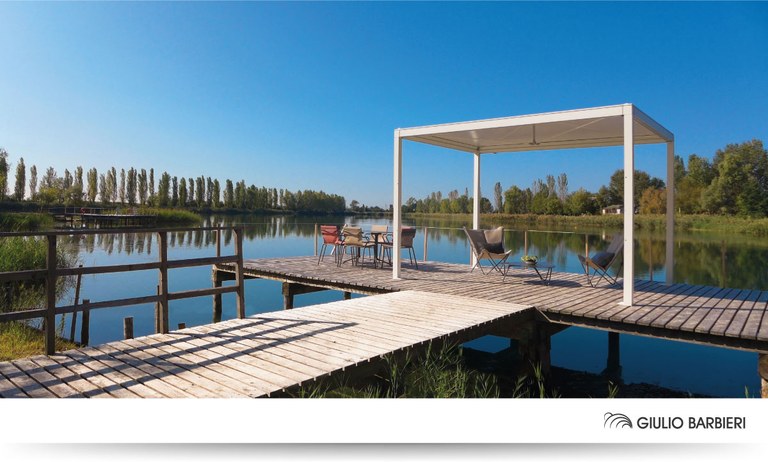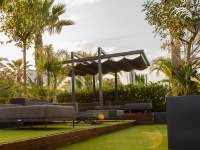Giulio Barbieri products embody the concept of ecological construction applied to outdoor furniture.
In addition to the attention paid to components and production materials, aesthetics, light, sound, and environmental feasibility are important considerations. Building green means being sustainable from all points of view! Green construction involves developing, building, and managing a structure in a way that complies with universal principles of environmental sustainability, reducing its negative impact on the environment. A sustainable building is the result of research and considerations for the environment and the future. It is based on the study of the surrounding environment, ambient noise, easily recyclable materials, the aesthetics of the landscape, and also the health and well-being of those who use it.
Remember, not everything that says it is green is necessarily sustainable!
"A house for trees inhabited by men." Stefano Boeri
Stefano Boeri, the architect and firm of the same name, is well aware of this. His Bosco Verticale, a pair of skyscrapers that best reflect the concept of ecological construction, is based on a clear symbiosis between nature and architecture, allowing to the creation of 20,000 square meters of forest and vertical undergrowth in the heart of the city of Milan.
In an increasingly urbanized and anthropogenic world, wooded skyscrapers constitute a radical and courageous solution for the cities of today and tomorrow: a model for the development of densely populated areas, without having to remove man from its environment.

Ecological construction applied to outdoor furniture: how Giulio Barbieri helps the environment
Our products are in line with the needs of everyday life: The aim is not only to make the production process more sustainable, but also to reduce everybody’s daily energy consumption. We found a way of desiging a building in the most ecological way possible by optimizing the use of recyclable materials – such as aluminum – adapted to the reduction of their environmentalal impact and energy consumption.
Giulio Barbieri offers structures that follow the emergence of new paradigms related to ecological construction applied to outdoor furniture through industrial and design choices. The structural component is always and only recycled aluminum and PVC, which isone of the most easily recyclable plastics available. In addition, a new chapter in the history of Giulio Barbieri was born 10 years ago with the development of photovoltaic carports. Ten years of experience and experimentation today allows us to offer a pergola system to the market. Bioclimatic, and with a fixed roof equipped with high-efficiency photovoltaic panels, with an inverter and a storage system, this is the world of Eclettica E-Power, which produces energy from the sun, our primary renewable source.
Eclettica is a concentration of new and innovative technological contributions that respond to a growing "green" sensitivity, associated with the search for total environmental comfort that satisfies all the senses, including that of hearing. The shapes, volumes, and technologies are 100% made in Italy. We trace a new way of conceiving solutions and products, walking resolutely towards the future, bringing together man and nature, drawing inspiration from precious renewable energy for moments of reflection on the meaning of life.
Giulio Barbieri's products are also free of mechanical automation, which further reduces the energy needs of structures, thus perfectly blending in with the environment without altering the visual balance of the landscape. Luxury does not lie in mechanical automation, but in the ability to respect the environment. A low human impact promotes the blossoming of nature, and this is a central part of Giulio Barbieri's philosophy.
